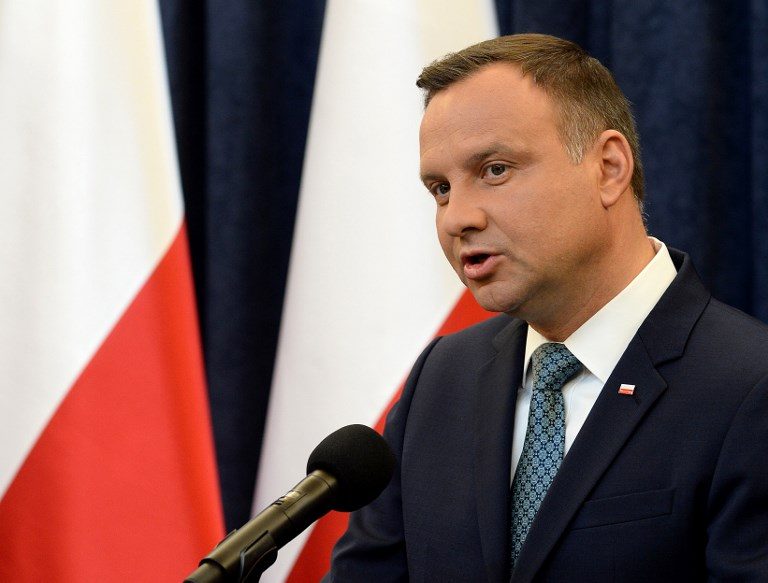SUMMARY
This is AI generated summarization, which may have errors. For context, always refer to the full article.

WARSAW, Poland – Polish President Andrzej Duda on Monday, July 24, vetoed controversial judicial reforms that had prompted huge street protests and threats of unprecedented EU sanctions.
“I have decided to send back to parliament – therefore, to veto – the law on the Supreme Court, as well as the law on the National Council of the Judiciary,” Duda said in a televised declaration.
“This law would not strengthen the sense of justice” in society, he said, adding that his decision followed extensive consultations with legal experts over the weekend.
“These laws must be amended,” Duda said.
The reforms would have increased political control over the judiciary, sparking an outcry amongst critics who said the ruling rightwing Law and Justice (PiS) party was seeking to reduce the independence of the courts.
“It should not be part of our tradition that the attorney general can interfere in the work of the Supreme Court,” Duda said.
The role of attorney general is held by the justice minister in Poland, and the change was among reforms that had sparked concern over the rule of law.
The Polish senate had on Saturday, July 22, backed the reforms, but they had still needed the president’s sign-off.
But Monday’s veto was a surprise as Duda is closely allied with the PiS.
Thousands of protesters had taken to the streets across Poland in recent days to oppose the bill, including huge crowds who held a candlelit protest outside the Supreme Court on Sunday night urging Duda to veto the changes.
The European Commission had threatened to halt Poland’s voting rights over the proposed reforms – a so-called “nuclear option” that the EU had never invoked – while the US had also expressed concern.
The government had defended the reforms, calling them indispensable to combat corruption and streamline the judicial system.
The PiS, which began making changes to the judiciary after coming to power in late 2015, has argued resistance to the initiatives is a case of the elite defending their privileges.
Under the current system, candidates for the Supreme Court are selected by an independent body consisting mainly of judges but also a few politicians. – Rappler.com
Add a comment
How does this make you feel?
There are no comments yet. Add your comment to start the conversation.